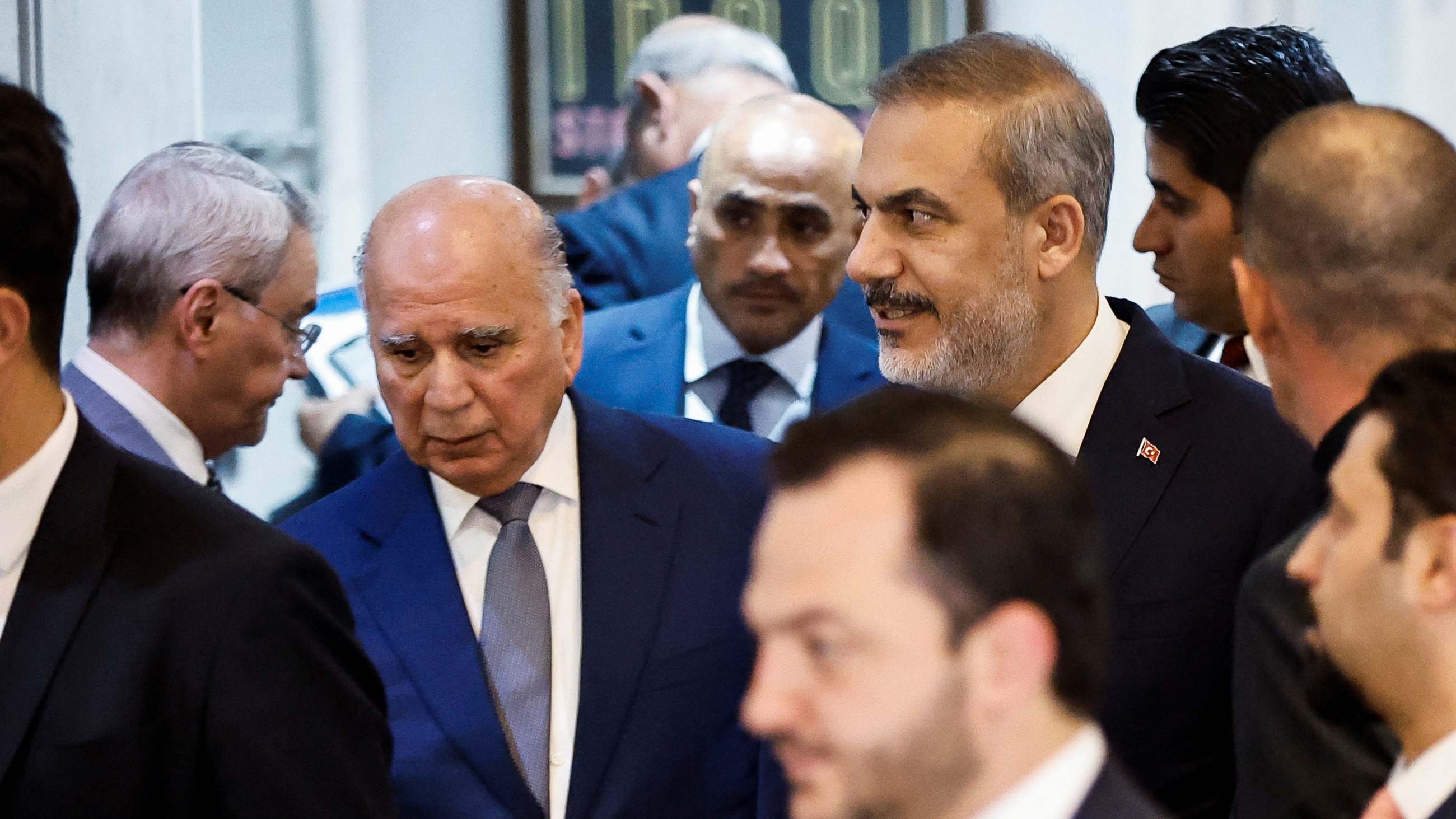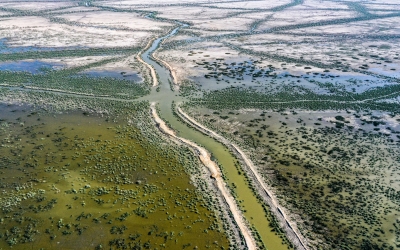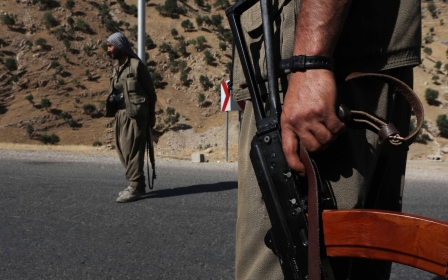Turkey's foreign minister meets Iraq's Shia heavyweights to deepen cooperation

Turkey’s foreign minister concluded a three-day trip to Iraq in which he met with actors from across the political spectrum, with water security, development projects, and fighting “terror” high on the agenda.
The visit, the first to Iraq by Hakan Fidan since he became foreign minister in June, included meetings with usual counterparts like Iraqi President Abdul Latif Rashid, Prime Minister Mohammed Shia al-Sudani, and Foreign Minister Fuad Hussein.
However, other sit-downs were perhaps more noteworthy, like his first-time meetings with senior Iran-aligned Shia heavyweights, including leaders of US-sanctioned groups.
Fidan held talks with Falih al-Fayyadh, head of the Popular Mobilisation Authority (PMA) paramilitary umbrella organisation; Nouri al-Maliki, former prime minister; Hadi al-Amiri, head of the Fatah alliance; and Qais al-Khazali, leader of the Asaib Ahl al-Haq political party and paramilitary group.
He also held discussions with Khamis al-Khanjar, the Sunni leader of the Azem Alliance.
Stay informed with MEE's newsletters
Sign up to get the latest alerts, insights and analysis, starting with Turkey Unpacked
“There hasn’t been a visit like this intense and comprehensive in the past 18 years,” Bilgay Duman, a coordinator for Iraqi studies at the Ankara-based think-tank, Orsam, told Middle East Eye.
“Fidan is taken very seriously in Iraq due to his past engagements as the intelligence chief. He knows all the actors.”
A Turkish source familiar with the visit told MEE that Ankara wants to talk to “pretty much everyone that matters within Iraq to help reach stability in the country”.
“We want a united Iraq that doesn’t witness the loss of generations, resources, and opportunities. And we will be a positive force to help them do it,” the source said.
PKK
At a joint news conference with his Iraqi counterpart Fuad Hussein, Fidan publicly asked Baghdad to brand the Kurdistan Workers’ Party (PKK) as a terror group.
The PKK, a Kurdish separatist group, has been in conflict with the Turkish state since the 1980s, involving violence that has killed tens of thousands of people. Turkey, the US, and the EU have designated the PKK as a terror group due to the deadly attacks it has carried out on civilians.
The group has operated from northern Iraq for decades and recently increased its presence in Sinjar and Sulaymaniyah, located in the country’s autonomous Kurdistan region.
Last year, Ankara closed its airspace to flights in and out of Sulaymaniyah, citing alleged growing activity of the PKK in the city.
'[Iraqi PM] Sudani is sharing more intelligence with Turkey on Iraq compared to the past'
- Bilgay Duman, Orsam think-tank
Iraqi officials have long complained that Turkish air strikes against PKK members violate the country’s sovereignty.
Hussein did not discuss Baghdad’s strategy in dealing with the PKK but stressed the importance of Iraq’s sovereignty at the press conference.
However, according to Duman, the Sudani government has taken several steps to target the PKK in recent months.
They include the encircling of the PKK camp in Makhmour outside of Erbil, deploying more guards on the borders with Turkey and Iran to stop infiltrations, and tightening control of PKK-linked groups in Sinjar.
“Sudani is sharing more intelligence with Turkey on Iraq compared to the past, and he perceives Turkey as a gateway to Europe,” Duman said.
“He is interested in Turkish development plans and would like to bring investors to establish an industry in Iraq.”
Water security
The source who spoke to MEE said Turkey is seeking to help Iraq find stability and support it in projects such as the ambitious Development Road Initiative.
The $17bn project aims to link Asia to Europe via a highway and a railway that would function as a trade route from Basra to Turkey.
But one of the main carrots Turkey can offer Iraqi groups is water.
“We have agreed to the formation of a permanent joint committee on water,” Fidan said on Wednesday, adding that the water issue in Iraq was “comprehensively” discussed and Ankara is aware of the water shortage in the country.
Iraq has accused Turkey of reducing its water share from the Tigris and Euphrates Rivers through dam construction and flow restrictions. Turkey, in turn, blames Iraq for mismanaging its water allocation.
Water levels in these rivers have significantly dropped in recent years, posing a severe threat due to climate change. Iraq's Ministry of Water Resources warned that urgent action is needed to prevent these vital rivers from drying up entirely by 2040.
Even though there is no bilateral deal that requires Turkey to release more water to Iraq from its dams, every Turkish government since the early 2000s has positively responded to requests for more water by Baghdad.
Turkish President Recep Tayyip Erdogan doubled the release of water through the Tigris River in April for a month to 1,500 cubic metres per second.
Erdogan’s special envoy on water, Veysel Eroglu, had been visiting Iraq in previous years to help Baghdad better preserve existing resources and stop the waste of water.
The source familiar with the trip said more Turkish technicians will visit the country in the coming weeks to accelerate the process.
Duman said Baghdad aims to establish a Turkey-Iraq water institute to coordinate the joint efforts.
But joint efforts to tackle the PKK and work on water and other projects could be hampered by Iran’s influence in Iraq, according to Duman.
For example, Iran has also been rerouting rivers from Iraq to Iran's basin, and earlier this week halted the flow of the Little Zab River into Iraq, which has worried Iraqi officials.
“Iran of course closely follows what’s going on in the country,” he said.
“But the Turkish agenda and Washington’s objectives in the country overlap in this instance. Both sides want to see a stable Iraq. ”
Middle East Eye delivers independent and unrivalled coverage and analysis of the Middle East, North Africa and beyond. To learn more about republishing this content and the associated fees, please fill out this form. More about MEE can be found here.





